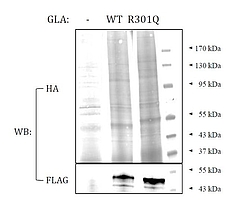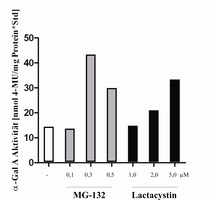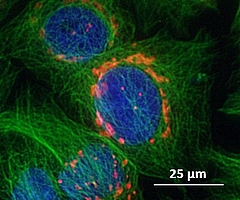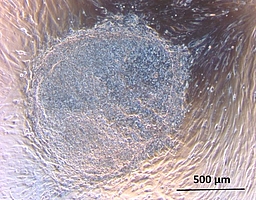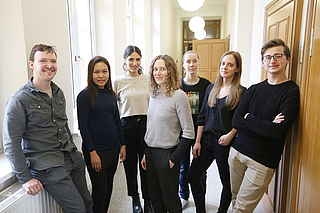Research Group Medical Genetics
The Medical Genetics working group, led by Dr. Jan Lukas, focuses on the development of innovative, cellular disease models with the aim of improving molecular diagnostic and prognostic methods and testing personalized, molecular therapeutic treatment approaches for patients with rare metabolic diseases.
The total number of these diseases is estimated at over 5000 and the number of different gene variants of the often polymorphic genes is steadily increasing. Not all gene variants are pathophysiologically significant. The elucidation of the connections between allelic changes and clinical disease patterns (also referred to as genotype-phenotype correlation) is one of the most important and also challenging questions of today's human genetics. Modern molecular diagnostics can be supported by expanding the basis of interpretation by using cellular disease models and IT-supported modelling.
In our laboratory we deal with the underlying molecular mechanisms of synthesis, processing and transport of defective protein variants leading to the pathophysiology of rare monogenic metabolic diseases.
A relatively new therapeutic approach describes the stabilization of misfolded but otherwise functional protein variants by influencing cellular proteostasis so that these proteins can escape premature ER-associated proteasomal degradation (ERAD) and process to the target site. The greatest therapeutic potential lies in a class of special low-molecular substances: the pharmacological chaperones. These chaperones bind directly to certain structural elements of the nascent protein and form a scaffold to allow the orderly folding of specific target proteins, thus avoiding the ERAD-mediated degradation of enzymatically active proteins.
Current projects deal with the copper accumulation disorder Wilson's disease ("Excellence-MV") and the lysosomal storage diseases Fabry's disease, Niemann-Pick's disease type C and Gaucher's disease.
Fabry's disease
